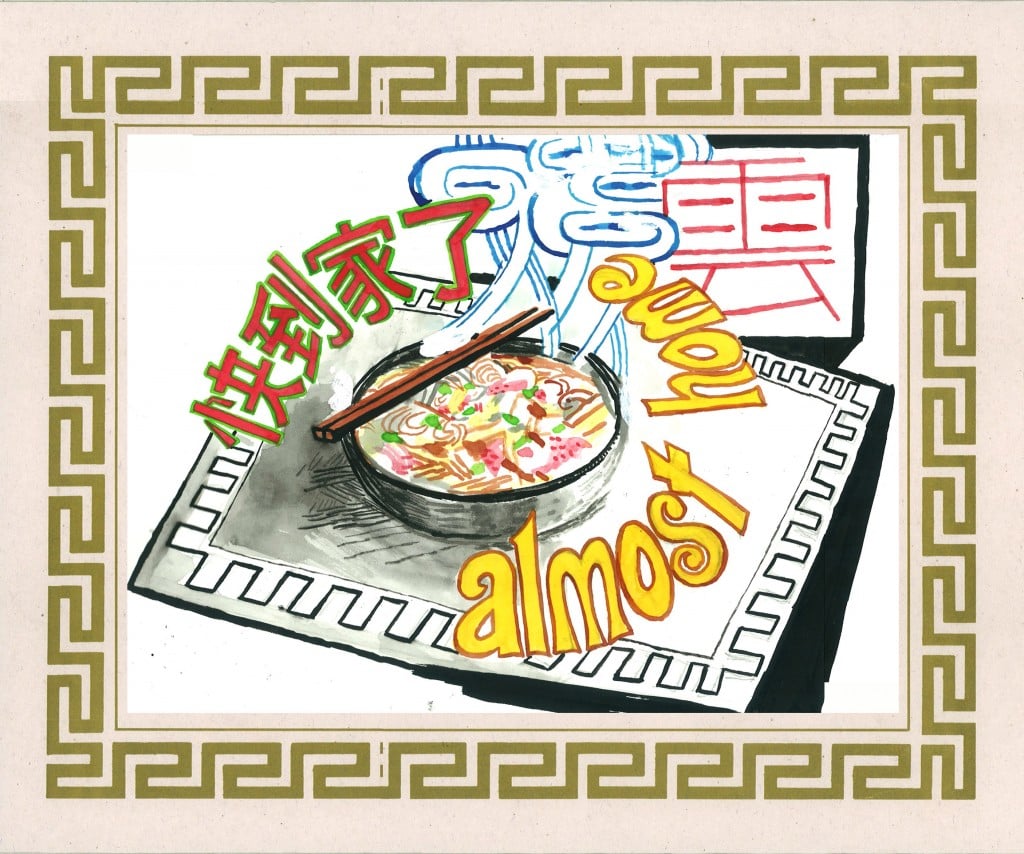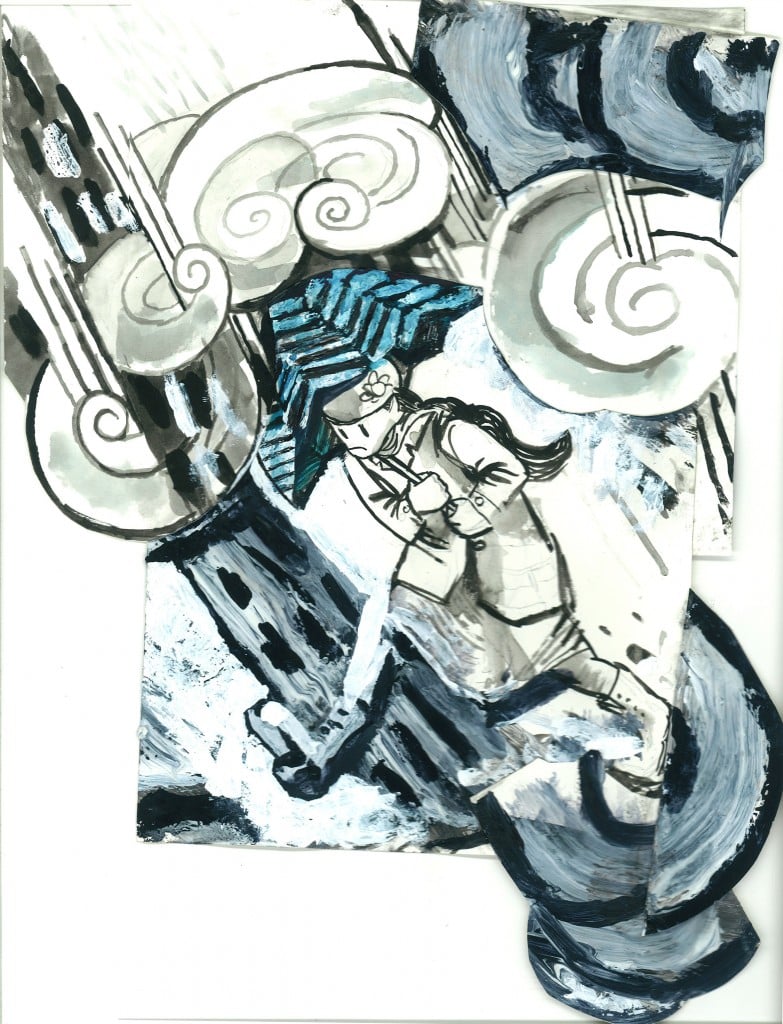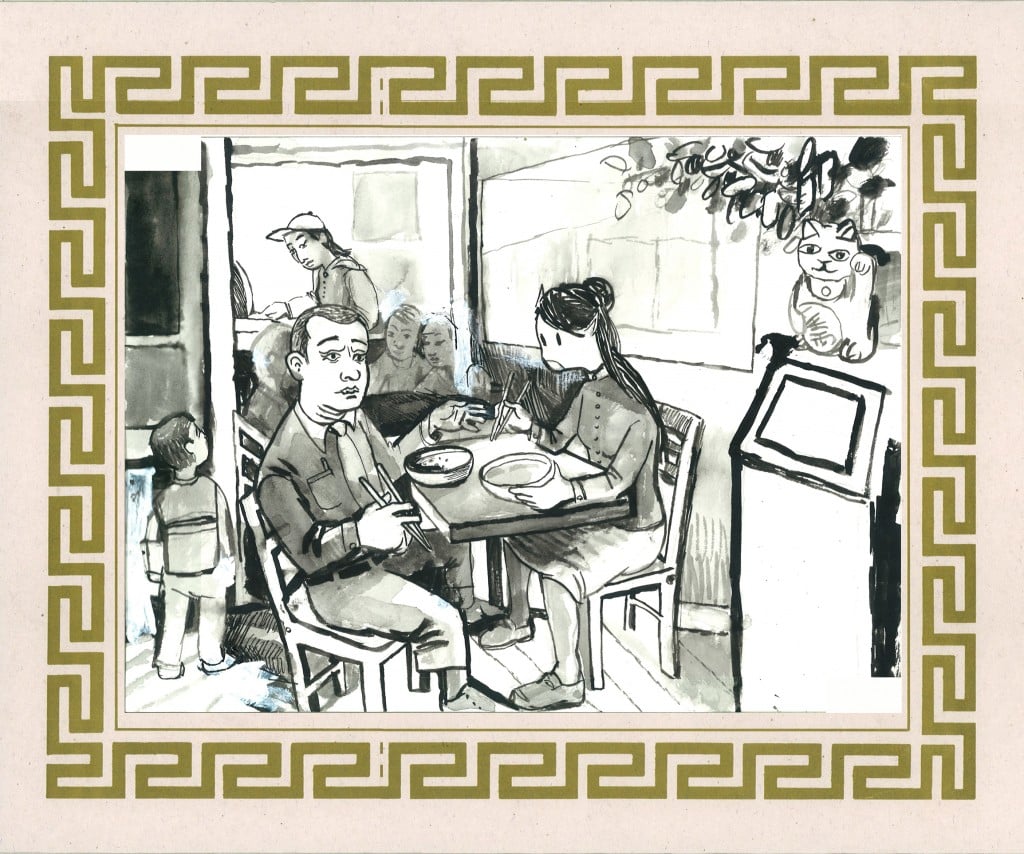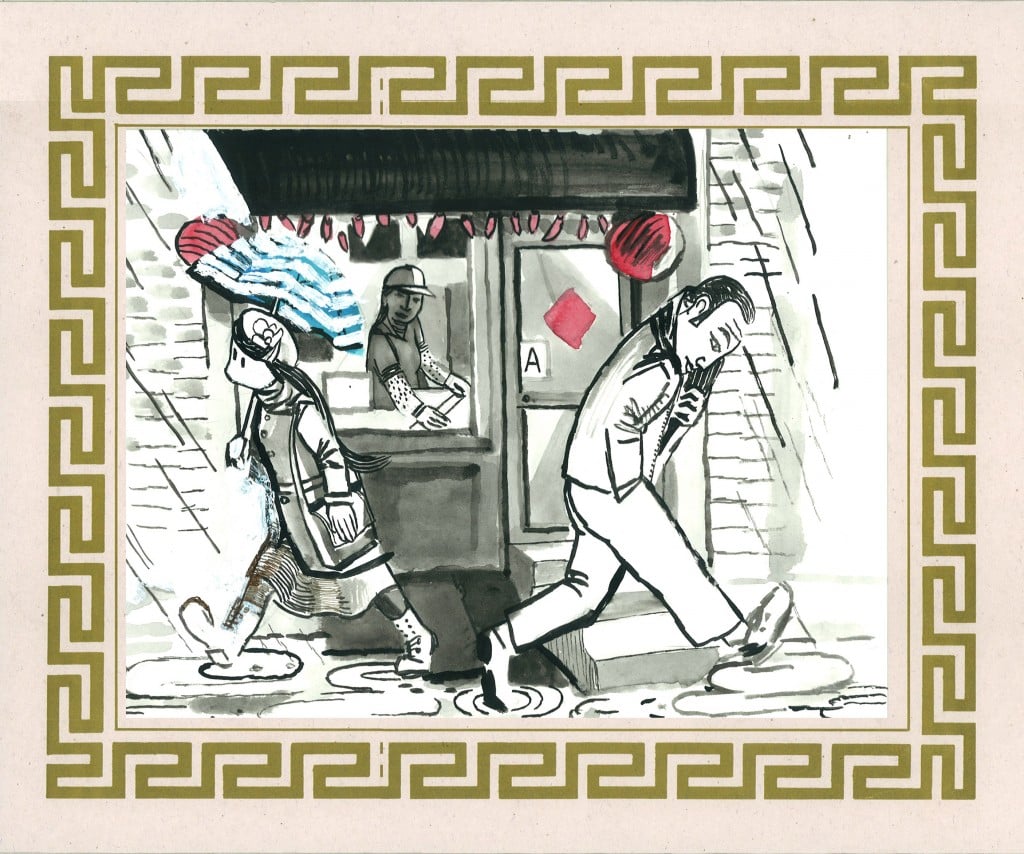Blog Archive
Stories Yun Told Me: Almost Home
“Stories Yun Told Me” is a series created by Tenement Museum Educators Jason Eisner and Ya Yun Teng exploring themes of language, interpretation, memory, and community through the adventurous eyes of Yun, a fictitious Chinese American immigrant born in the year of the Pig. At twenty-two, Yun immigrates to New York City from her native Taiwan. She loves to share stories about her experiences—stay tuned for further installments!
One wet and slushy evening after work, I decided to eat out instead of cooking for myself. I was already on the Lower East Side, so I headed toward this little Northern Chinese style noodle shop I’d heard about.
It was not an easy task, at least for me, to find a suitable place to eat in this LES Chinatown. Sometimes I wondered whether I was being too picky? The Cantonese restaurants mainly catered to the tourists who were shopping for bargains and looking for an “authentic” Chinatown experience.
The Fujianese places along East Broadway and Eldridge Street were popular with the recent Chinese immigrants. They served dishes like fish ball rice noodle or a bowl of pork ball soup with stir fried vermicelli. These dishes were also a classic combo in an ordinary diner in Taipei, so I thought I’d have better luck at some Fujianese restaurants. But most of the time I felt disappointed more than anything because the dishes tasted nowhere close to what I remembered from home.
Maybe Northern Chinese food would be a good choice, since the style was so different from what I was familiar with. A combination of this, the reckless wind and a long day of work that wore me down, pulled me in the direction of the little Northern style noodle place.
When I walked in from the cold, I noticed most of the seats were taken. Two tables were put together for a group of excited students. A girl from the group asked questions and translated for her friends as the food was brought to the table. Many people, including me, came here by themselves after work for a quick bite before going home to get ready for the next day’s work.
A man sitting alone at a table gestured me to sit down with him. He introduced himself as Peter and said, “Sitting together but not sharing food is sad, but eating alone is worse. A little noodle shop like this is a haven for lonely eater. A bowl of noodle comes with everything. Strangers don’t share food, but we are allowed to share a table.”
Peter emigrated from Beijing and now lives in New Jersey. He pays a visit to this restaurant whenever a business meeting brings him to the city. “They serve Henan food here, very different from Beijing style, but this is the closest to home-style in the city so far.” When Peter came to the United States almost thirty years ago, most of the Chinese in this Chinatown were from Canton. “It was hard then to find a Northern Chinese restaurant but now we have one here- in the middle of the Fujianese neighborhood!”
I learned that this Henan restaurant was run by Mr. and Mrs. Zhu- a couple from Fujian. It was only after they immigrated to New York that they learned the distinguished Henan style. For two years, they worked as apprentices in Flushing Queens, a new Northern Chinese neighborhood. There they learned everything from kneading dough to tending lamb stew. Northern Chinese food was heavily pasta-based- very different from Fujian style- so none of the processes were familiar to them. For the Zhu family it was as if they had to learn to cook all over again.
Peter liked the food especially he loved the smell of dough in the restaurant. That was the smell he dreamt of at night… the smell of his mother’s kitchen. For these many years living in America, very few people understood his longing. He talked about food with Mr. and Mrs. Zhu as if it was poetry- like dusting off treasure he stashed away in a box high in the attic. They became good friends.
Peter was eager to tell me about Northern Chinese food, and so was Mrs. Zhu. She told me the noodles they served were thinner to meet the Southern Chinese’s expectation (the Southerners were still learning to appreciate Henan style, so the Zhus had to adapt). If I liked, Mrs Zhu said, I could choose to replace noodle with rice vermicelli or Chow Fun. She took my order and returned to a table in the corner of the restaurant where she made the dough.
I wondered what Peter thought of the new adaptation. Maybe he is used to it because many things can grow beyond imagination in America? Or is it a tragic compromise- the style is only a shadow of home? Does this idea sometimes tickle annoyingly after a weary day at work? Or, maybe does he tolerate it because of his friendship with the Zhu family?
Maybe not exactly, but I got the feeling the food spoke his secret language.
— Posted by Jason Eisner & Ya Yun Teng



